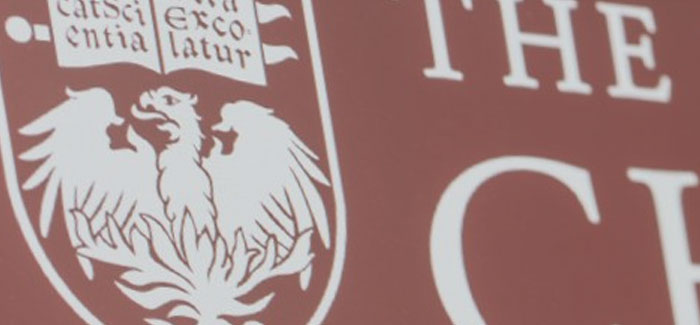
Students put their heads together to create a magazine.
On a Sunday in July a headline in the Arts & Entertainment section of the Chicago Tribune asked “What’s the big idea?” and answered in the line below: “A New Chicago mag.” The magazine in question was the Point, coedited by Jon Baskin, Jonny Thakkar, and Etay Zwick, all doctoral candidates in the John U. Nef Committee on Social Thought. The Tribune Q&A with Baskin— which followed on the heels of a similar Chicago Reader blog—has helped catapult the Point to even wider recognition.
Hankering to explore intellectual ideas within the context of contemporary life, Baskin, Thakkar, and Zwick first thought of publishing a magazine in early 2008. “During a conversation in the pub you might suddenly say, ‘Hey, didn’t that passage in Machiavelli remind you of what’s going on in the Middle East?’ Thakkar explains. “But there wasn’t a forum for writing about something like that.”
The first 1,000 copies of Issue One sold quickly, so the editors ordered a reprint of 825 copies this fall. Slated for mid-January publication, Issue Two will cover a host of topics, including a reflection on the contemporary vogue for seduction manuals and two reviews of the documentary film Examined Life—one by Thakkar and one by Law School professor Martha Nussbaum, a subject of the film.
Although several essays in the first issue were penned by University graduate students, the editors are open to submissions from anyone and hope to maintain a balance between established and up-and-coming writers. One established writer—philosopher and cultural theorist Slavoj Žižek—wrote an article for the first issue “born of a happenstance exchange at the Seminary Co-op,” says Zwick. “I went there to pick up a book, and as I strolled down the stairs, I heard this distinct voice and thought, ‘That’s Slavoj Žižek standing behind me.’ I went up to him and told him about our project. It was unclear whether he heard me at first because he broke out into a lecture about the book I had in my hand. After a few minutes of striving for personal traction with him, he said that he was excited about the idea and that I should contact him.”
With prominent contributors, an intellectual bent, and a place affiliation that’s suggested in its name, the Point prompts comparison to similar magazines, including the New Yorker. Was the pedigreed publication a model? With “a lot of articles that invite people, including those who do not live in New York, to think about what is going on there and universalize those things to discuss broader topics,” the New Yorker, Zwick says, “definitely was a source of inspiration because we wanted to create a space where writers could delve into Chicago’s phenomenal artistic, theatrical, and political scene. At the same time, one can read a New Yorker article for three hours, have a really pleasant time, and not be sure that it said anything in the end. Excellent writing, but not necessarily writing that makes an argument. In general, I think it’s fair to say that the Point was born out of an admiration for as well as a dissatisfaction with numerous publications.”
The end result was a magazine that doesn’t quite fit any one mold. Says Thakkar: “We read other magazines, we like other magazines, but only a few of our articles could conceivably be in other magazines.” And perhaps that’s the point.
